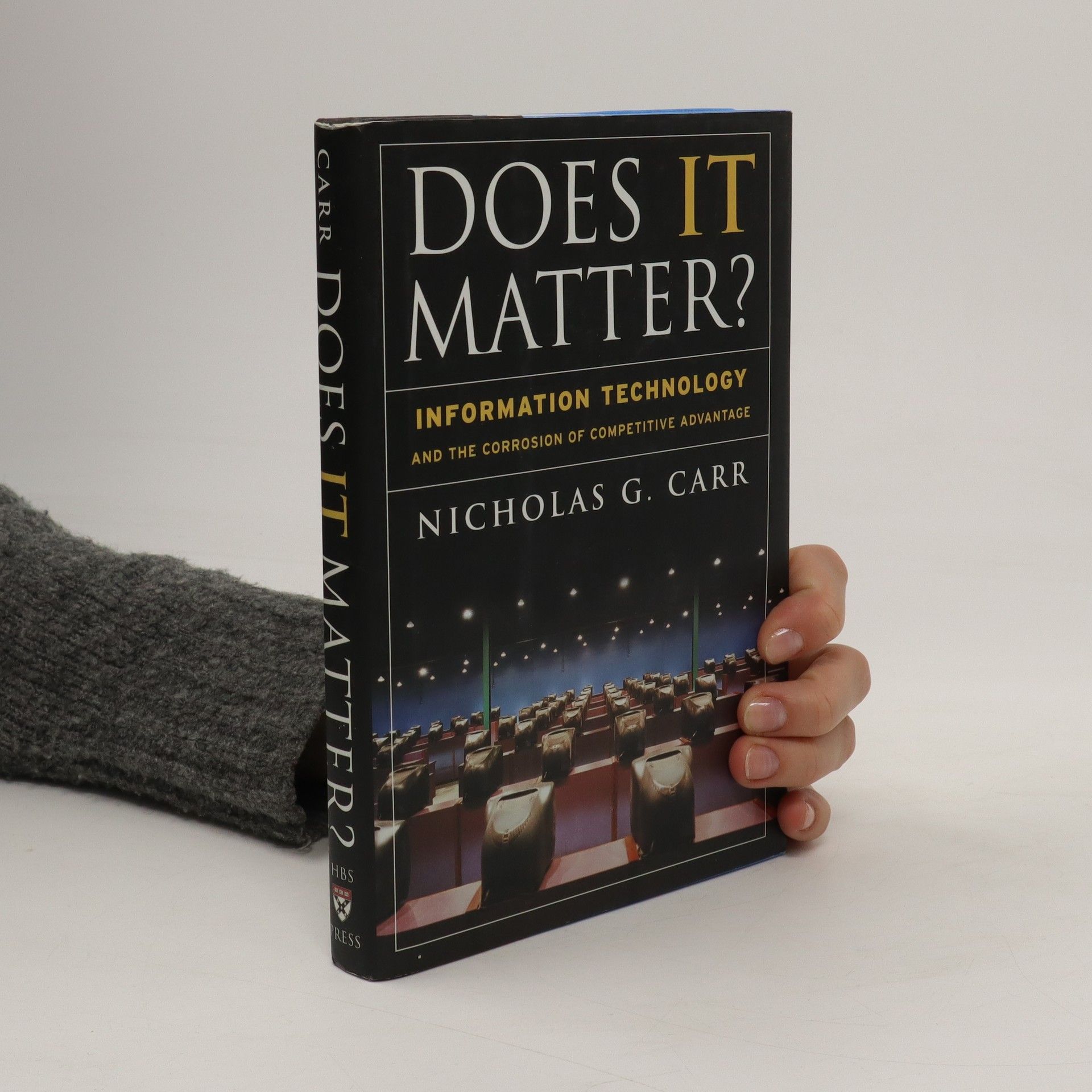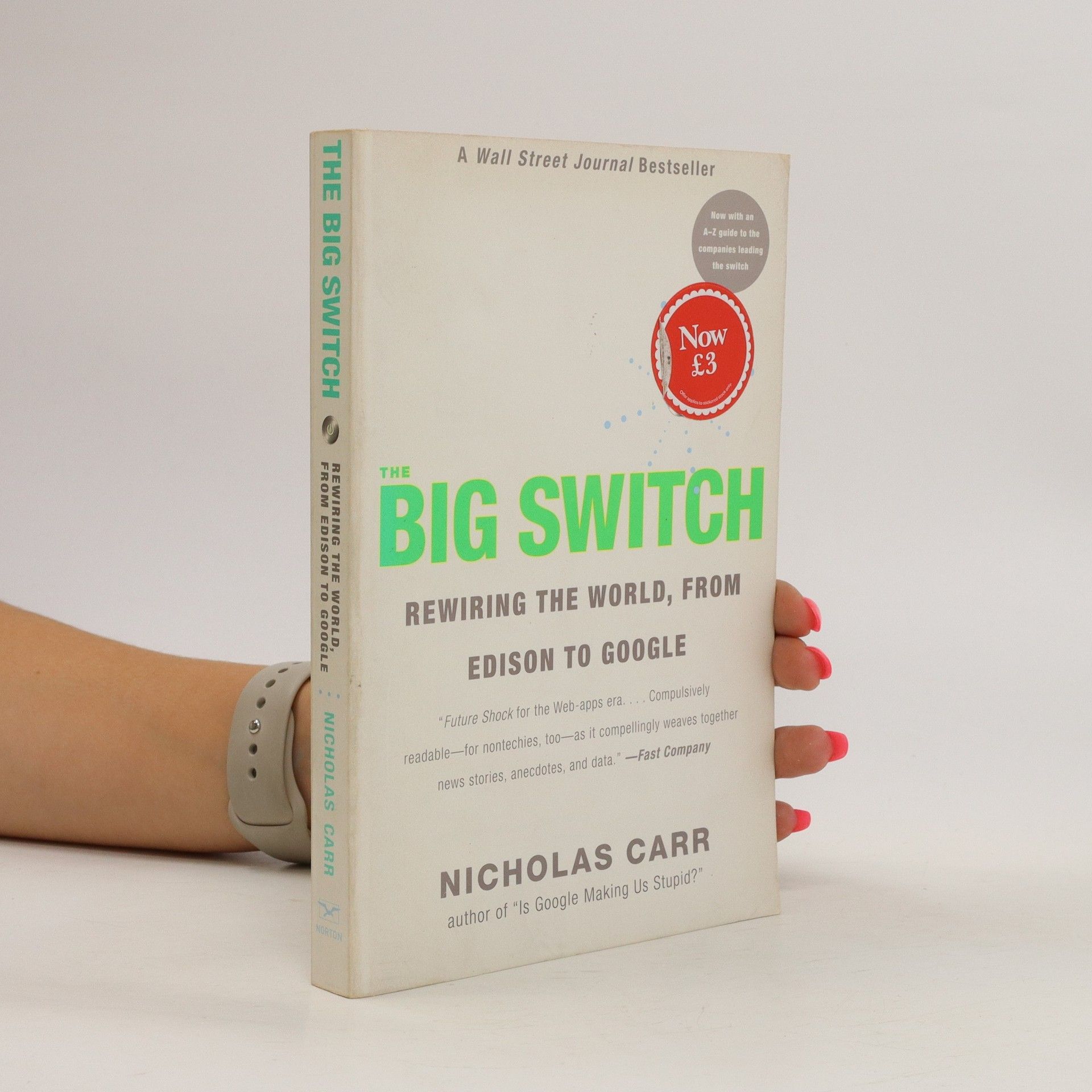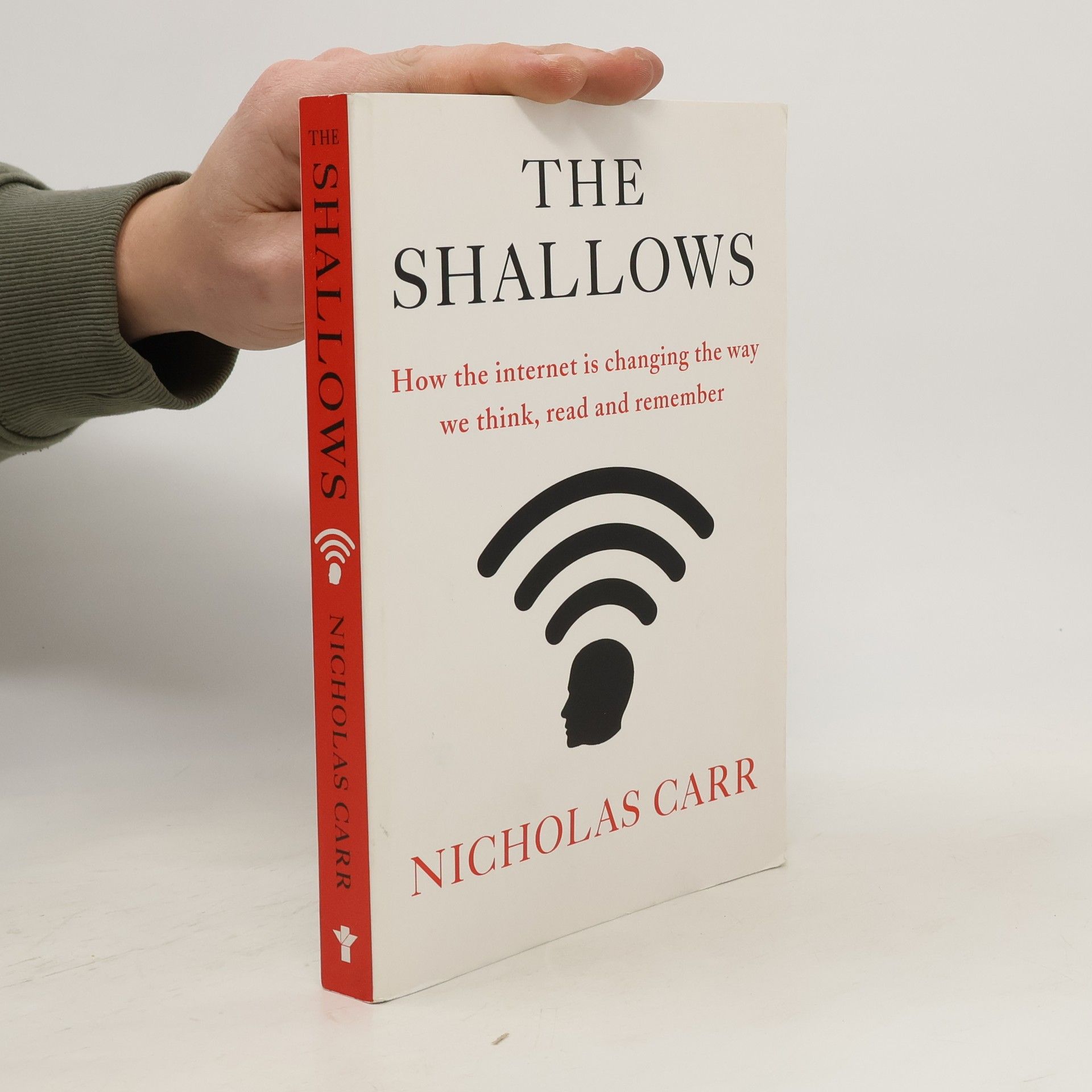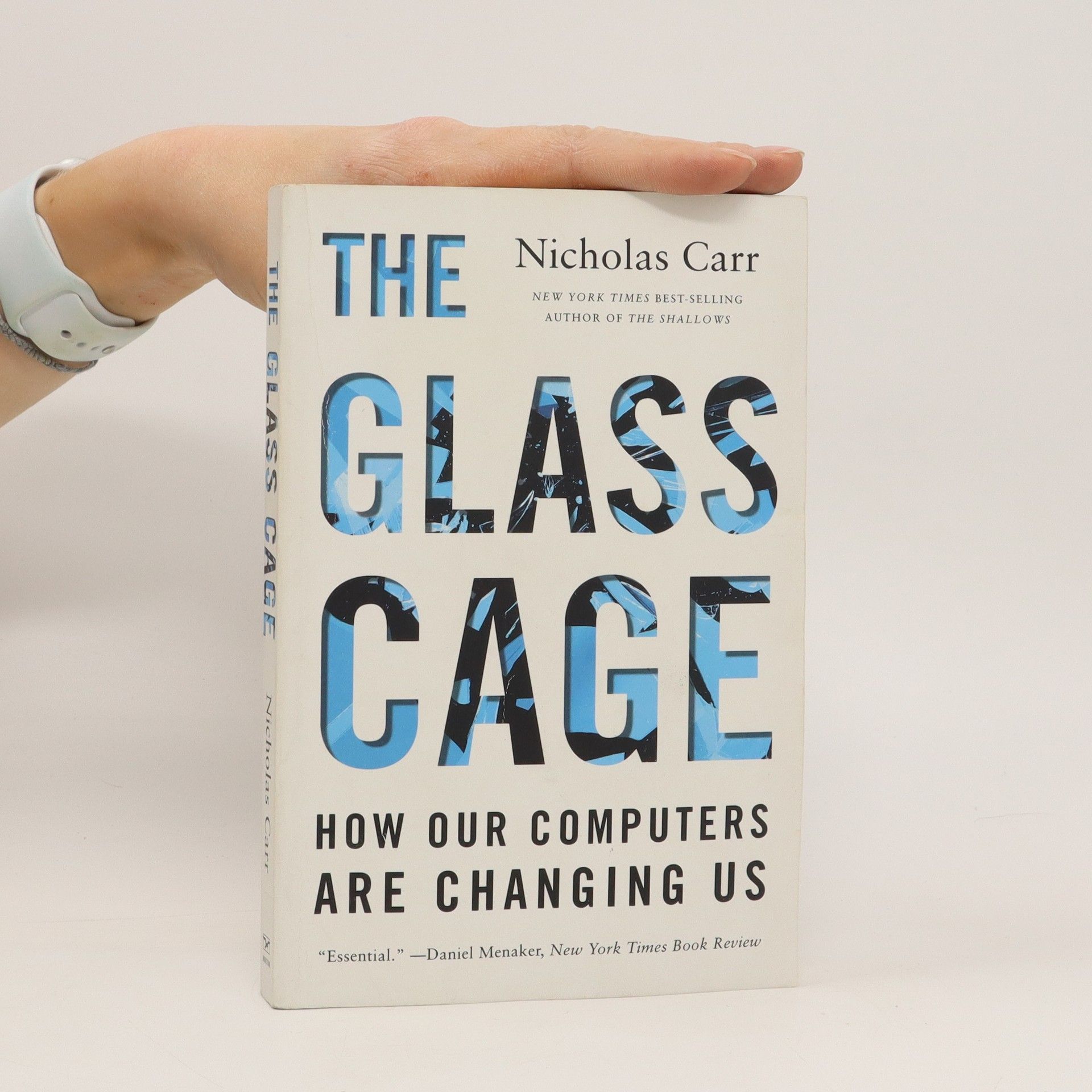Kniha Skleněná klec je oslavou technologie a současně varováním před jejím nesprávným používáním. Její autor, Nicholas Carr, popisuje osobní, společenské a ekonomické důsledky automatizace; jak změnilo používání počítačů a softwaru k vykonávání činností, které jsme dříve dělávali sami, náš život. Výhody počítačového zpracování dat, robotizované výroby, digitalizovaného lékařství nebo samořídicích automobilů jsou zjevné: automatizace nám výrazně usnadňuje život, šetří náš čas a umožňuje nám činit věci dříve nemožné. Automatizace však má i hlubší a skrytější účinky. A ne všechny z nich jsou prospěšné. Vybírá si svou daň – na naší práci, talentu, životě. Automatizace může zúžit naši perspektivu a omezit možnost volby. Může nás vystavit dohledu a manipulaci. Je načase uvědomit si, že rozhodnutí týkající se používání moderních technologií jsou rovněž rozhodnutími o tom, jak budeme pracovat a jak budeme žít. Je načase položit si otázku, co znamená být člověkem. Nemusíme o nás nechat rozhodovat jiné, můžeme poodstoupit a přemýšlet o technologii kriticky, nemusíme se nechat strhnout vlnou pokroku. A můžeme se bránit. Bránit se invenci neznamená ji odmítat. Znamená to ji pokořit, vrátit pokrok nohama na zem.
Nicholas G. Carr Knihy
Nicholas Carr je autor, jehož práce se ponořila do hlubin naší stále rostoucí závislosti na technologiích. Zkoumá, jak nás neustálé propojení a automatizace formují a přetvářejí, často nepředvídatelnými způsoby. Jeho psaní se vyznačuje bystrou analýzou, která čtenáře nutí kriticky přemýšlet o dopadu digitálního věku na naši mysl a společnost. Prostřednictvím svých děl Carr podněcuje důležitou debatu o budoucnosti lidské zkušenosti ve světě ovládaném softwarem.







Titul Nebezpečná mělčina se stal bestsellerem a v roce 2011 se dostal mezi finalisty na Pullitzerovu cenu v kategorii Literatury faktu. Carr názorně ukazuje, jak nové technologie mění způsob lidského myšlení a jednání. Uznává, že internet přinesl celou řadu pozitivních aspektů, ale vybral si nemilosrdnou daň v podobě poskytování roztříštěných informací, neschopnosti vnímat kontext, rozumět obsahu, soustředit se či informace hlouběji zpracovávat. Ke změně nedochází pouze na mentální úrovni, ale bohužel i v samotné struktuře lidského mozku. Historicko- vědecké důkazy prokazují, že změna struktury mozku je reakcí na zkušenosti. Technologie, které používáme dnes k hledání, ukládání a sdílení informací nás však od tohoto přirozeného vývoje odklánějí. Oproti tištěné knize, která vybízí ke koncentraci a hlubokému zamyšlení, umožňuje internet rychlé a roztěkané vyhledávání informací z mnoha zdrojů. Díky němu jsme rychlí a výkonní, máme optimalizovanou výrobu a spotřebu, texty dokážeme zběžně prolétnout a vytáhnout z nich jen potřebné informace, ale ztrácíme schopnost koncentrace, rozjímání a reflexe.
The Glass Cage
- 288 stránek
- 11 hodin čtení
"In The Glass Cage, best-selling author Nicholas Carr digs behind the headlines about factory robots and self-driving cars, wearable computers and digitized medicine, as he explores the hidden costs of granting software dominion over our work and our leisure and reveals something we already suspect: shifting our attention to computer screens can leave us disengaged and discontented."
The Shallows
- 276 stránek
- 10 hodin čtení
Is Google making us stupid? In this extraordinary new book, as incendiary as it's important, Nicholas Carr argues that the internet is changing dramatically how we think, remember and interact. The Internet is eroding our capacity for concentration and co
The Big Switch
- 304 stránek
- 11 hodin čtení
"Future Shock for the Web-apps era.... Compulsively readable—for nontechies, too."—Fast Company Building on the success of his industry-shaking Does IT Matter? Nicholas Carr returns with The Big Switch, a sweeping look at how a new computer revolution is reshaping business, society, and culture. Just as companies stopped generating their own power and plugged into the newly built electric grid some hundred years ago, today it's computing that's turning into a utility. The effects of this transition will ultimately change society as profoundly as cheap electricity did. The Big Switch provides a panoramic view of the new world being conjured from the circuits of the "World Wide Computer." New for the paperback edition, the book now includes an A–Z guide to the companies leading this transformation.
Does IT matter? : information technology and the corrosion of competitive advantage
- 208 stránek
- 8 hodin čtení
A bold and controversial manifesto on where information technology is headed, how its role in business strategy will dramatically change, and what this all means for business managers and IT suppliers Does IT Matter provides the first cogent explanation of IT’s dramatically changing business role, its levelling influence on competition, and the practical implications for business managers and IT suppliers. A convincing manifesto on one of the most important business phenomena of our time, “Does IT Matter?” will play a central role in our ongoing debate about the future of IT.
The glass cage. How our computers are changing us
- 288 stránek
- 11 hodin čtení
In The Glass Cage, best-selling author Nicholas Carr digs behind the headlines about factory robots and self-driving cars, wearable computers and digitized medicine, as he explores the hidden costs of granting software dominion over our work and our leisure and reveals something we already suspect: shifting our attention to computer screens can leave us disengaged and discontented
Wie beeinflusst sie Körper und Geist? Heute schon gegoogelt? Im Durchschnitt sind die Deutschen etwa zweieinhalb Stunden täglich online. Neuesten Studien zufolge, so zeigt Bestsellerautor und IT-Experte Nicholas Carr, bewirkt bereits eine Onlinestunde am Tag erstaunliche neurologische Prägungen in unserem Gehirn. Wer das Internet nach Informationen, sozialen Kontakten oder Unterhaltung durchforstet, verwendet, anders als beim Buch- oder Zeitunglesen, einen Großteil seiner geistigen Energie auf die Beherrschung des Mediums selbst. Und macht sich um die Inhalte, buchstäblich, keinen Kopf. Die Folge: Im Internetzeitalter lesen wir oberflächlicher, lernen wir schlechter, erinnern wir uns schwächer denn je. Von den Anpassungsleistungen unseres Gehirns profitieren nicht wir, sondern die Konzerne, die mit Klickzahlen Kasse machen. In seinem neuen Buch verbindet Carr, zwanzig Jahre nach Entstehung des World Wide Web, seine medienkritische Bilanz mit einer erhellenden Zeitreise durch Philosophie-, Technologie- und Wissenschaftsgeschichte – von Sokrates’ Skepsis gegenüber der Schrift, dem Menschen als Uhrwerk und Nietzsches Schreibmaschine bis zum User als Gegenstand aktueller Debatten und Studien. Und er vermittelt – jenseits von vagem Kulturpessimismus – anhand greifbarer Untersuchungen und Experimente, wie das Internet unser Denken verändert.

